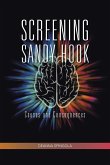To help the researcher understand why and how children react to adults who are doing ethnographic research, Fine and Sandstrom explore the methodological and ethical problems of qualitative research with minors. They correct numerous fallacies held by researchers that children think like adults and that they cannot hide their thoughts and feelings from adults, especially strangers. Recognizing that age is an important determinant of children's response, they discuss problems and present strategies for conducting research with three age groups of children: preschool children (4 to 6 year olds), preadolescents (10 to 12) and middle adolescents (14 to 16). This is the first major methodological statement on doing participant observation work with children.
Hinweis: Dieser Artikel kann nur an eine deutsche Lieferadresse ausgeliefert werden.
Hinweis: Dieser Artikel kann nur an eine deutsche Lieferadresse ausgeliefert werden.








